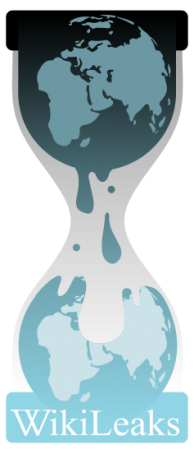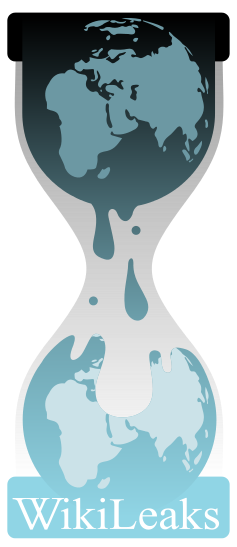IN EXPLAINING PRIVATE SERVER
by Sharon Rondeau
 (Nov. 8, 2016) — In an email dated March 15, 2015 from Clinton campaign spokesman-in-waiting Nick Merrill to future Clinton pollster and chief strategist Joel Benenson and other close operatives, Merrill wrote that he would enlist the “help” of Wall Street Journal reporter Laura Meckler to provide a “counter-narrative” to the news, first reported by The New York Times on March 2, 2015, that Hillary Clinton had used a private email address and domain while serving as Secretary of State between 2009 and early 2013, thereby avoiding normal archiving protocols.
(Nov. 8, 2016) — In an email dated March 15, 2015 from Clinton campaign spokesman-in-waiting Nick Merrill to future Clinton pollster and chief strategist Joel Benenson and other close operatives, Merrill wrote that he would enlist the “help” of Wall Street Journal reporter Laura Meckler to provide a “counter-narrative” to the news, first reported by The New York Times on March 2, 2015, that Hillary Clinton had used a private email address and domain while serving as Secretary of State between 2009 and early 2013, thereby avoiding normal archiving protocols.
At the time of the email exchange, Clinton had not yet officially declared herself a 2016 presidential candidate, and her strategists were discussing how best to handle the email matter, which later became the focus of two FBI probes.
For the last month, WikiLeaks has been releasing batches of emails to and from the email accounts of Clinton campaign chairman John Podesta, a longtime Democrat operative who served as chief of staff in Bill Clinton’s White House as well as on the 2008 Obama presidential transition team. Merrill’s message included Podesta as a recipient, hence its release.
A post at the “Free Republic” forum dated July 23, 2016 following a sizable WikiLeaks release of emails exchanged among Democrat National Committee (DNC) operatives is titled, “What’ve Young Laura Meckler Of The Wall Street Journal & Her DNC Co-workers Been Up To?”
A commenter responded with, “Laura Meckler covers the Democrat presidential campaign for the Wall Street Journal. Actually, it a ppears as though young Laura is PART of the Democrat presidential campaign – specifically, working for Crooked Hillary:” [sic]
Below the title of the post is a link to a WikiLeaks email published on July 22, 2016 which showed clear coordination between DNC operatives Mark Paustenbach and Luis Miranda and Meckler. On May 6, 2015, Meckler asked Miranda and Paustenbach for a letter that then-Democrat primary contender Bernie Sanders had sent to the DNC in which he “threatened a floor fight over rules and platform planks at the party’s summer convention on Friday, warning the Democratic National Committee not to stack the convention’s standing committees with supporters of Hillary Clinton” as reported by CBS News.
Miranda responded to Meckler, copying in Paustenbach, with:
OFF THE RECORD, You didn’t get this from me. They didn’t send it to us before planting the story. We’re operating in good faith.
Click to access Sanders-DNC-Committee-Letter-5.6.16.pdf
The link to Sanders’s letter is still active.
The DNC had publicly said it would remain “neutral” during the Democrat primary contests which began February 1 with the Iowa caucus. As a result of the publication of the DNC emails which showed favoritism of Clinton and marginalization of Sanders during the primaries, Paustenbach, Miranda, and then-DNC chairwoman Debbie Wasserman Schultz stepped down from their positions.
Many believed that the DNC had “rigged” the primaries in Clinton’s favor before WikiLeaks began releasing the emails.
Last month, DNC interim chairwoman Donna Brazile was accused of providing Clinton a question to be asked at a townhall forum with Sanders in Flint, MI, an accusation she vehemently refuted until a second WikiLeaks email proved that she had provided at least two questions to Clinton. Brazile had been employed as a political commentator in addition to her vice-chairmanship of the DNC.
On October 31, CNN confirmed that Brazile had turned in her resignation on October 17.
WikiLeaks’ releases have shown coordination and camaraderie between the Clinton campaign and a variety of mainstream media reporters.
Meckler has continued to publish articles for The Journal.
As Americans headed to their polling places on Tuesday, WikiLeaks founder Julian Assange issued a press release revolving around the role of the press in a free society. “The US public defends free speech more passionately, but the First Amendment only truly lives through its repeated exercise,” Assange wrote, referencing the first provision of the U.S. Bill of Rights.
Assange also differentiated between his decade-old organization, which he claims has a 100% authentication rate for the material it has published, and the U.S. corporate media. “WikiLeaks, like all publishers, is ultimately accountable to its funders. Those funders are you. Our resources are entirely made up of contributions from the public and our book sales. This allows us to be principled, independent and free in a way no other influential media organization is. But it also means that we do not have the resources of CNN, MSNBC or the Clinton campaign to constantly rebuff criticism,” Assange said.
“Yet if the press obeys considerations above informing the public, we are no longer talking about a free press, and we are no longer talking about an informed public,” he asserted.

